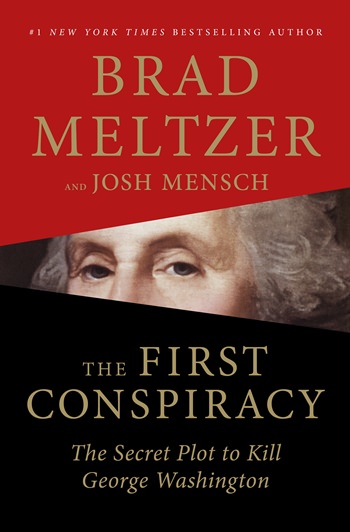
George Washington faced some big problems as he tried to fortify New York City against British forces in the summer of 1776.
His ragtag army was woefully short on weapons and battle experience. The British were assembling a massive expeditionary force to crush his army and snuff out the nascent revolution.
And one more thing: some of his own bodyguards were involved in a traitorous plot against him.
“The First Conspiracy” follows the shadowy plot that played out in and around Manhattan as Washington focused on the coming British attack. The odd assortment of characters involved in this cloak-and-dagger tale include a scheming gunsmith, would-be counterfeiters and some members of Washington’s elite bodyguard detachment, called the Life Guards.
Looming ominously over all the machinations was Gov. William Tyron, the top British official in New York. Rising revolutionary sentiment had forced him to retreat to a ship in New York Harbor, but he was still able to spin his webs of intrigue against the rebels.
It’s not a spoiler to point out that the plot failed. Washington, of course, was just beginning his long, historical run on the world’s stage. The only person to lose his life after the plot was exposed was bodyguard Thomas Hickey, who was publicly hanged for “mutiny, sedition, and treachery.”
So authors Brad Meltzer and Josh Mensch extract what they can out of the historical record to tell a colorful story giving the reader a sense of Revolutionary-era Manhattan. The writing is punchy and the chapters are short, though the authors have an annoying habit of ending every chapter with a cliffhanger, even when they have to contrive one.
Despite the book’s subtitle, it’s not certain whether plotters planned to assassinate Washington or capture him. Many believed it was an assassination plot ever since Hickey went to the gallows. In one famous story, Washington was about to be served poisoned peas before a servant threw the plate out the window at the last second, saving the future president but killing some chickens outside who ate the deadly vegetables.
That story is almost certainly apocryphal. But what was the most likely plan? Scouring the existing evidence, the authors come up with a conclusion that seems as good as any that can be drawn more than two centuries later. (AP)

 |
 |
 |




